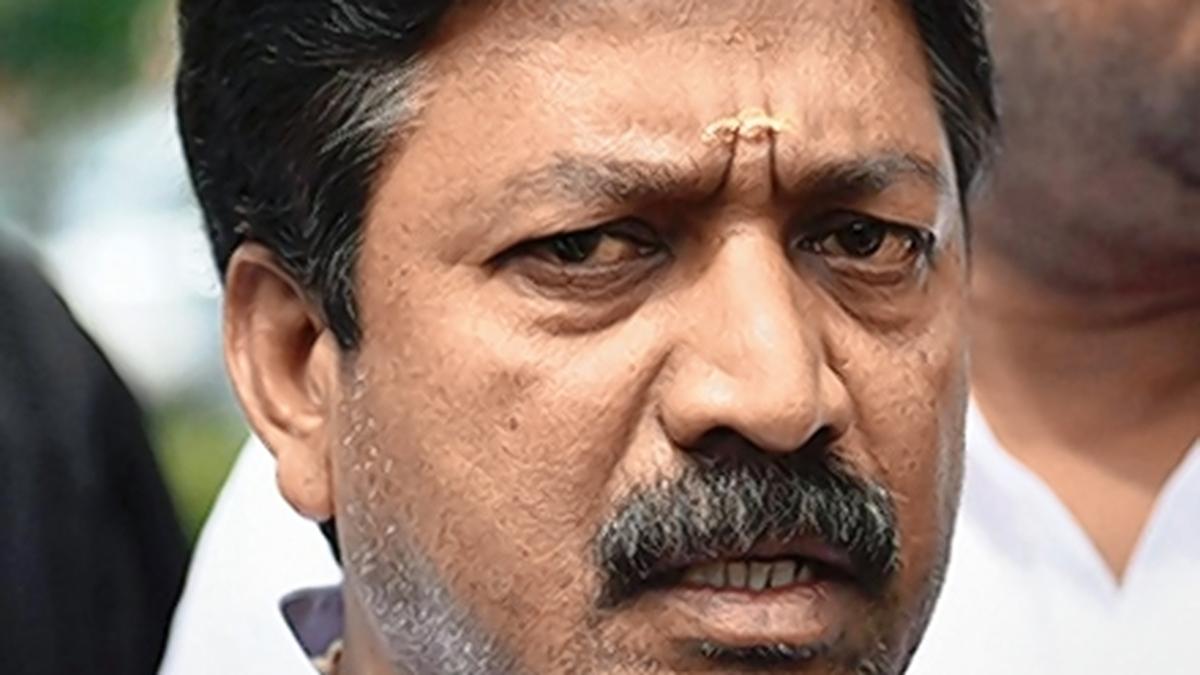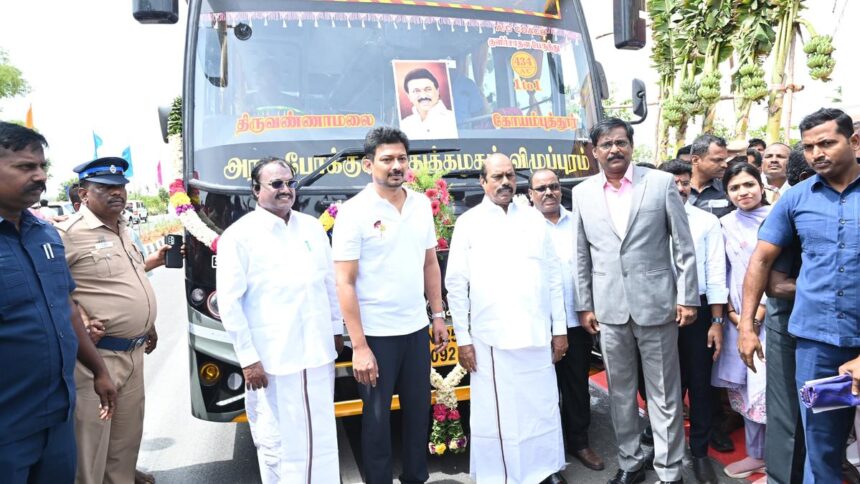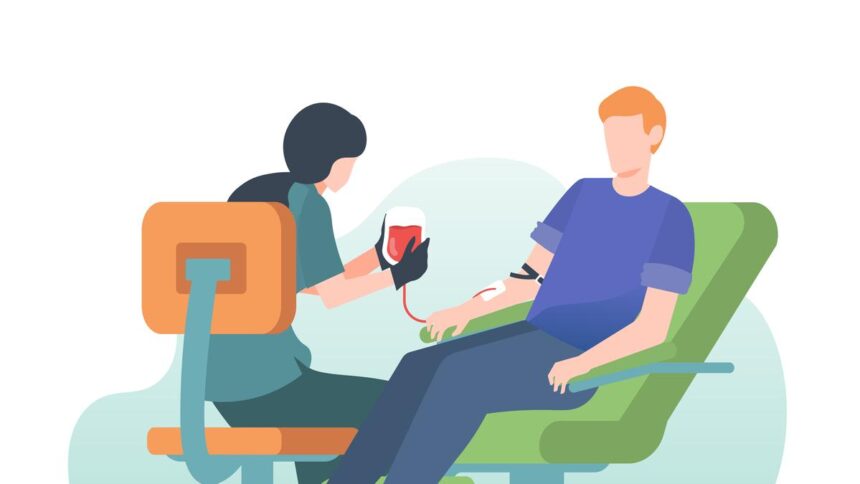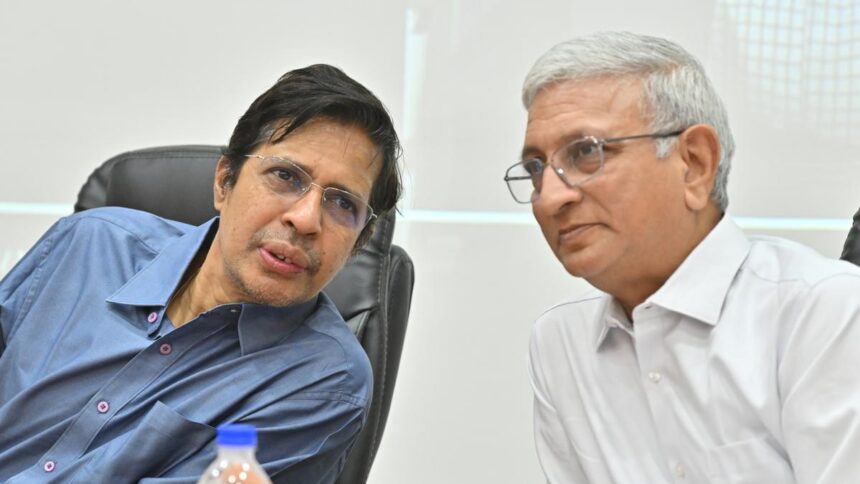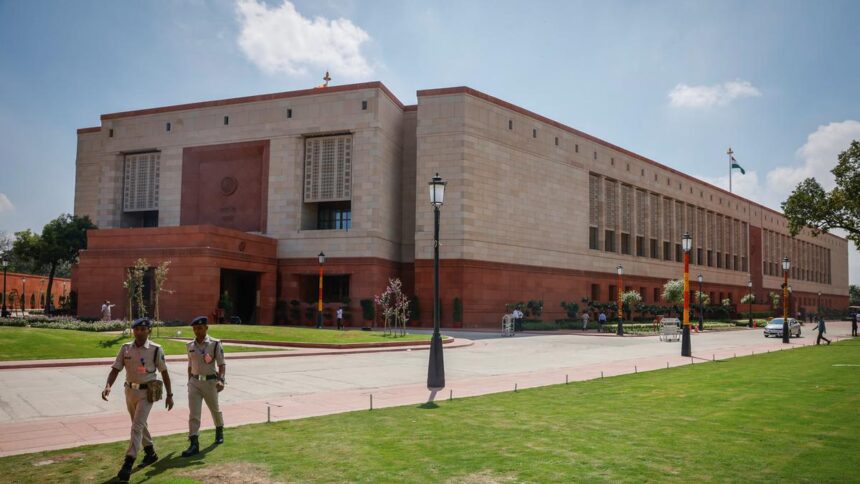
AIADMK Member of Parliament C.Ve. Shanmugam. File
| Photo Credit: PTI
The Supreme Court on Wednesday (August 6, 2025) dismissed a challenge raised by All India Anna Dravida Munnetra Kazhagam (AIADMK) Member of Parliament C.Ve. Shanmugam to naming a Tamil Nadu Government outreach programme, ‘Ungaludan Stalin’, after the Chief Minister as “misconceived” and an “abuse of law”.
A three-Judge Bench headed by Chief Justice of India B.R. Gavai dismissed the pending case instituted by Mr. Shanmugham in the Madras High Court with costs of ₹10 lakh, which he has to pay the Tamil Nadu Government for the purpose of use in the State’s welfare programmes.

The Bench set aside a Madras High Court order, passed in Mr. Shanmugham’s petition, imposing “sweeping restrictions” on the Tamil Nadu Government from naming State welfare schemes after “any living personality”. The DMK party had appealed the High Court’s July 31 restraining order in the Supreme Court.

Senior advocates A.M. Singhvi, Mukul Rohatgi and P. Wilson, appearing for the DMK, argued the High Court order had operated as a “de facto injunction” on the elected government in Tamil Nadu from formulating and implementing public welfare schemes.
Mr. Shanmugam’s side, represented by senior advocate Maninder Singh and advocate Balaji Srinivasan, challenged the implementation and publicity of ‘Ungaludan Stalin’ (With You, Stalin), an outreach programme notified on June 19. Mr. Shanmugham had urged the High Court to direct the Election Commission of India to take action against the DMK under Paragraph 16A of the Election Symbols (Reservation and Allotment) Order of 1968. It had also wanted the Content Regulation Committee on Government Advertising (CCRGA) to interdict the Tamil Nadu government from using the name ‘Stalin’ in the programme.
The Supreme Court did not agree with both submissions. It questioned why the petitioner had focussed on one particular political party, DMK, and not challenged the actions of other political outfits using their leaders’ names to brand programmes.
“Time and again, we have observed that political battles should be settled before the electoral roll and courts should not be used for this… Schemes in the name of political leaders is a phenomenon followed across the country. When such schemes are floated in the name of all leaders of political parties, we do not appreciate the anxiety of the petitioner to choose only one political party and one political leader. If the petitioner was so concerned about the misuse of political funds, the petitioner could have made a challenge to all such schemes. However, singling out only one political leader shows the intentions of the petitioner,” the court observed.
‘Ungaludan Stalin’: Madras HC bars naming schemes after living persons
The Madras High Court has restrained the Tamil Nadu government from using the name of any living personality in the nomenclature of new or re-branded public schemes to be introduced in the future. The Court passed the interim order on a PIL filed by AIADMK MP C.Ve. Shanmugam against the use of CM M.K. Stalin’s name in the public outreach programme, ‘Ungaludan Stalin.’
| Video Credit:
The Hindu
The DMK had submitted that the Union government itself had, in recent years, launched several schemes incorporating the political nickname ‘NaMo’.
“During the tenure of the AIADMK government in Tamil Nadu between 2011 and 2021, an overwhelming number of schemes were named using the political moniker ‘Amma’, in reference to the former general secretary of the AIADMK, J. Jayalalithaa,” the DMK petition had submitted.
Mr. Wilson submitted the ‘Ungaludan Stalin’ initiative was not a publicity vehicle for political mileage, but rather a citizen-centric outreach programme. He contended that the High Court order was not only unsustainable in law but caused irreparable harm to the public at large by impeding the delivery of essential government services to vulnerable populations.
Published – August 06, 2025 01:58 pm IST








